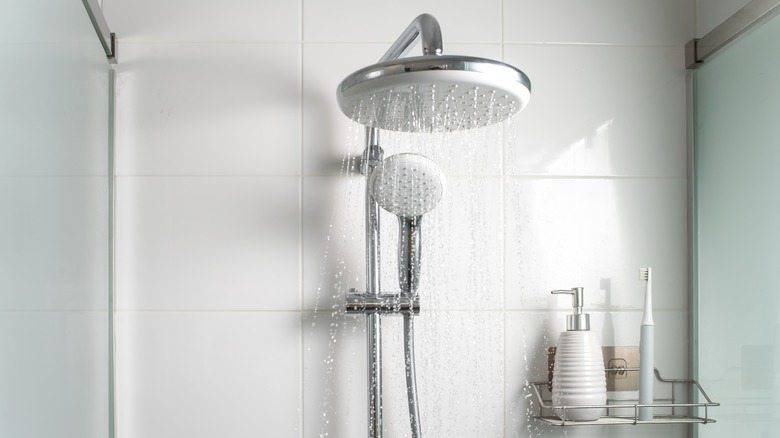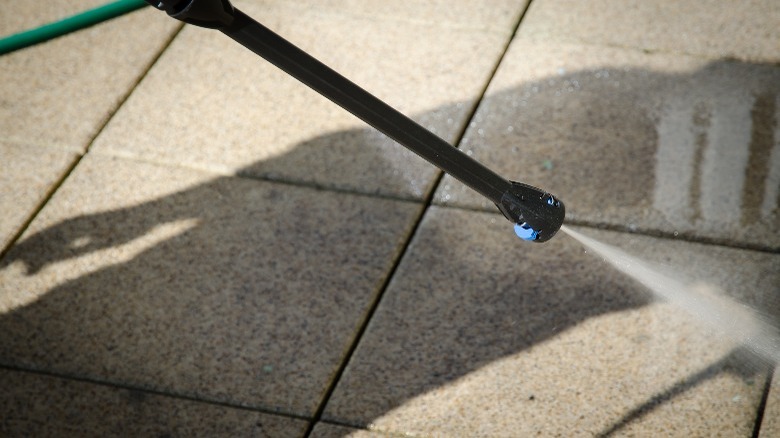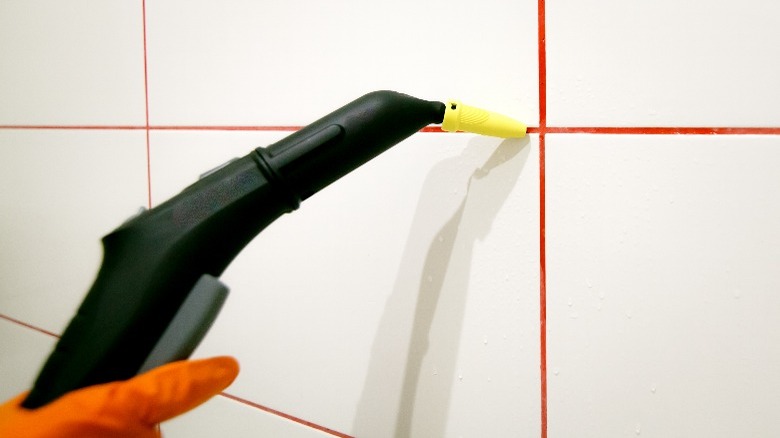Can You Pressure Wash Your Shower?
Some of the ideas promoted on TikTok are better than others, but this one involving pressure washing your shower seems to be a solid one. At least as long as you follow a few safety precautions. We've got the low-down on this high-pressure ingenious cleaning technique. Pressure washers, in general, are great to have for certain chores around the house. They can be a lifesaver for tasks that would otherwise require excessive sweat and hard labor. Therefore, finding yet another justification for purchasing one is always welcome.
For example, tasks like cleaning driveways and sidewalks, patios, decks, fences, vehicles, engines, roofs, shingles, gutters, outdoor furniture, trash cans, and awnings — need we continue? — all require a pressure washer. So do pools, hot tubs, bird baths, fountains, grills, and the newest addition: showers. There are a few exceptions and several cautions to take regarding pressure washing your shower, so we've gathered it all together for you to do so safely.
How to use a pressure washer in the shower
The main thing to remember is only to use this method if your tile and grout are in good condition. In general, power washers don't belong inside the house, especially not gas-powered models. If you have a cordless model, you can use it with no worries. You can also use a regular corded model with no more than 1,700 psi, as long as you run it through an outside hose line and leave the main unit outdoors, so all leakage happens there. Despite your best efforts, you'll want to prepare the area for getting wet. You can run the hose through the window of the bathroom.
Power washing the shower may take some finesse to master, as you'll need to hold the wand closer to the tiles than you're used to when using the device. Once you get accustomed to the amount of pressure you should apply and the distance you should be from the tiles as you go, the work will go much faster. Simply make slow, overlapping sweeps across the walls and floor. Avoid the faucet and shower head if you're not using a cordless model, and clean the shower door separately. These things can be damaged by more powerful pressure washers.
What to watch out for when you do
While pressure washing your shower can be a fairly straightforward and efficient method for cleaning it, there are still some real concerns about possible damage if you do. The best thing you can do to ensure no damage occurs is to perform a thorough pre-inspection on your tile and grout. If grout lines measure more than ½ inch wide, they're more likely to chip. Make sure there are no other red flags to indicate potential damage.
Additionally, avoid both ceramic and porcelain tiles if they're glazed. The power washer can damage the finish. The other big thing to remember is the nozzle you use. Generally, the green nozzle with a 25-degree spray pattern is suggested. A cordless model also has a yellow nozzle with a 15 Fahrenheit degree spray pattern. Never use the red nozzle with zero degrees on any pressure washer for this job, and refrain from using it on the shower door as it can shatter. As long as you take these safety precautions seriously, using a power washer to clean your shower is quite an impressive hack!


